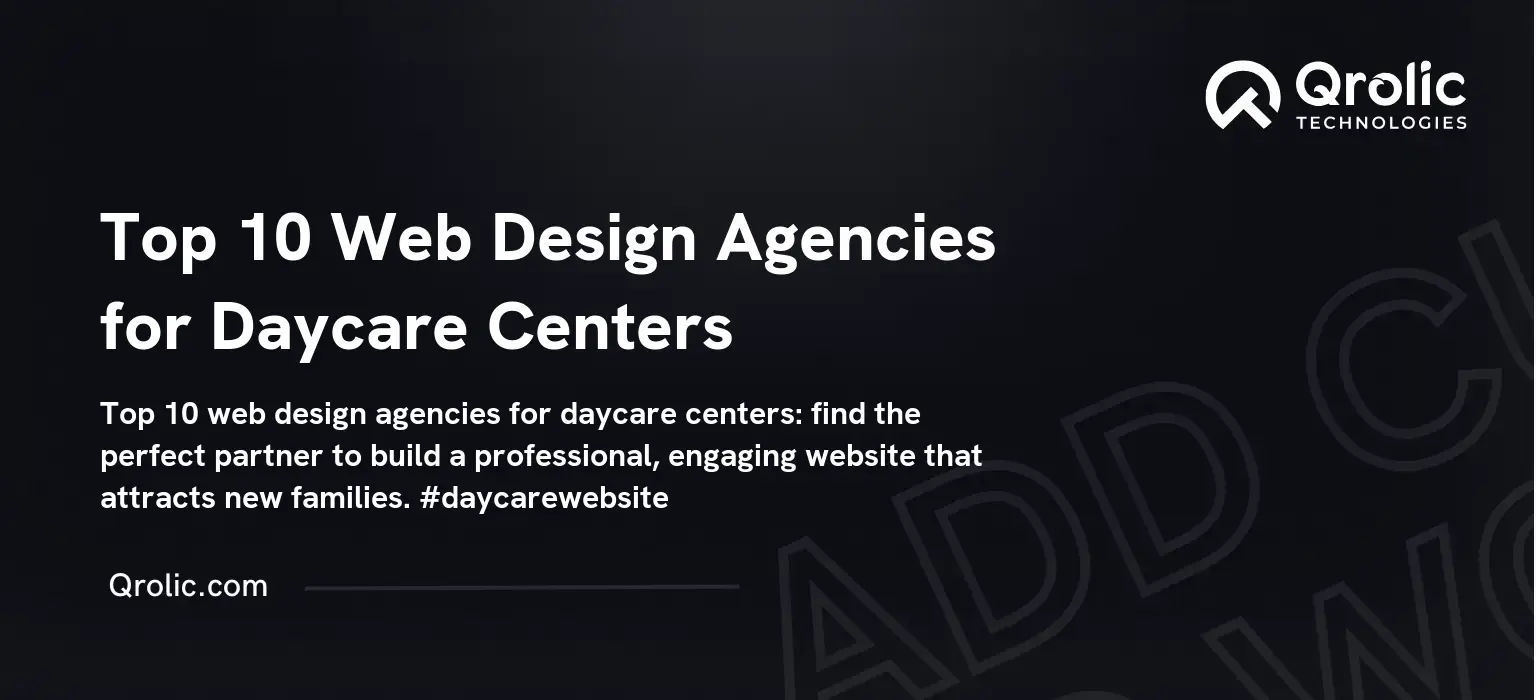The Curtain Rises: Why Your Small Theater Needs a Powerful Website
In today’s digital age, a compelling online presence is no longer optional; it’s essential, particularly for small theaters. Your website is often the first point of contact for potential audience members, actors, and donors. It’s your digital stage, a place to showcase your productions, build community, and ultimately, fill seats. But many smaller theaters, often operating on tight budgets, struggle to afford professional web design. This article explores accessible and effective web design solutions, tailored specifically for the unique needs of small theatrical groups. We will dive deep into what makes a great theater website, the steps to get one built, the benefits you stand to gain, and practical strategies for making your online presence shine without breaking the bank.
The Stage is Set: What Makes a Great Theater Website?
A successful theater website isn’t just about looking pretty; it needs to be functional, engaging, and easy to navigate. Let’s break down the key components:
User-Friendly Navigation:
Imagine your website as a theater lobby. Patrons should easily find information about current shows, upcoming events, ticket sales, and how to get involved. A clear, intuitive menu is crucial. Think simple, descriptive labels like “Shows,” “Tickets,” “About Us,” “Contact,” and “Support Us.” Avoid jargon or overly creative terminology that might confuse visitors. A mobile-friendly design is also critical as many people access websites on their phones.
Visually Appealing Design:
While budget-friendly options are essential, aesthetics are important. Your website’s visual design should reflect the spirit of your theater. High-quality images and videos of past productions, the venue itself, and perhaps even team members can make a strong impression. A consistent color scheme, a clear font choice, and well-spaced text enhance readability and user experience. A visually appealing website creates an experience that mirrors the theatre’s performances—engaging and enticing.
Essential Information:
Your website should be a hub of information. Patrons need easy access to:
- Show Details: Clear descriptions of current and upcoming productions, including showtimes, dates, ticket prices, and cast information.
- Ticket Sales: A secure and straightforward online ticketing system is crucial. This section must be easy to find and use.
- Venue Details: Location, directions, parking information, and accessibility details are very important to share.
- About Us: A compelling story about your theater’s mission, history, and the team behind it.
- Contact Information: Clear ways for people to get in touch, including an email address, phone number, and social media links.
Mobile Responsiveness:
Today, more people browse the internet on their mobile devices than on desktops. A responsive design ensures your website looks and functions flawlessly on smartphones and tablets. This is not a nice-to-have, it’s absolutely essential. Without it, you’ll lose many potential customers who find your site difficult to use.
SEO Optimization:
Search engine optimization (SEO) makes your website easier to find in search results when people are looking for local theatre options. This involves strategically using relevant keywords (such as “small theater website design,” “performance venue Web Development,” and “arts web designers”), clear page titles, and descriptive text. We will delve deeper into SEO strategies later.
Why Does Your Small Theater Need a Website? The Benefits of a Digital Stage
A website is more than just an online brochure; it’s a powerful tool that can significantly impact your theater’s growth. Here’s why having a strong online presence is essential:
- Increased Visibility: A well-optimized website ensures that potential audience members can find your theater when they search online for local events or performances. This is especially critical for attracting new patrons who aren’t familiar with your work.
- Simplified Ticketing: Online ticket sales are convenient for both the theater and its audience. Customers can purchase tickets anytime, anywhere, without needing to call or visit the venue. This improves ticket sales, especially during those crucial pre-sale periods.
- Enhanced Engagement: A website allows you to share content like behind-the-scenes videos, cast interviews, and promotional materials. It’s a platform for building your community and engaging with your audience on a deeper level.
- Brand Building: A professional website establishes credibility and reinforces your theater’s brand identity. It communicates that you’re serious about what you do, which is often especially important to potential donors and grantors.
- Cost-Effective Marketing: Online marketing through your website is a budget-friendly alternative to traditional advertising methods. It allows you to reach a wider audience at a lower cost.
- Streamlined Communication: Share important updates, such as show cancellations or schedule changes, quickly and efficiently. A well-maintained website reduces the need for constant emails and calls to answer common questions.
- 24/7 Presence: Your website is always open and available, allowing potential patrons to discover your theater at their convenience, any time of day or night.
Affordable Solutions: Web Design on a Budget
The misconception that professional web design has to be incredibly expensive holds many smaller theaters back. The good news is, there are several affordable options available that can result in a great-looking, functional website. Let’s explore some of these options:
DIY Website Builders:
Website builders like Wix, Squarespace, and Weebly offer user-friendly interfaces and pre-designed templates that can significantly reduce costs. These platforms are ideal for small theaters with limited technical expertise and budgets.
- Advantages:
- Cost-Effective: The monthly subscription fees are generally very affordable.
- Ease of Use: They feature drag-and-drop interfaces, making it easy to create and manage your website without coding knowledge.
- Pre-Designed Templates: Choose from a variety of professional templates and customize them to match your theater’s branding.
- Built-in Features: Many builders offer integrated tools for email marketing, social media integration, and basic e-commerce (for selling merchandise).
- Disadvantages:
- Limited Customization: While templates are customizable, there can be limitations in terms of advanced design or functionality.
- Ongoing Fees: While low, the monthly fees can add up over time, and if you ever need to switch platforms, you have to recreate your website.
- SEO Limitations: Some website builders are not as optimized for search engines as others. Be sure to research the platform and their ability to be optimized.
- Scalability: As your theatre grows you may eventually find that the website builder is no longer meeting your needs, at which point you’ll have to rebuild.
wordpress.org (Self-Hosted):
WordPress.org is a powerful and versatile content management system (CMS) that provides more flexibility and control than website builders. While it requires a bit more technical knowledge, it’s still an accessible option, particularly for those willing to invest a little time in learning the ropes.
- Advantages:
- Highly Customizable: WordPress offers a vast selection of themes and plugins to enhance functionality and design.
- Full Control: You have complete control over your website’s look and feel, as well as its functionality.
- SEO-Friendly: WordPress is inherently SEO-friendly, allowing you to optimize your website for better search engine rankings.
- Scalable: WordPress is built to handle growth, so as your theater grows, you won’t be restricted by platform limitations.
- Large Community: WordPress has a large support community and readily available resources.
- Disadvantages:
- More Complex to Set Up: Setting up a WordPress website does require some technical knowledge and time.
- Requires Hosting: You’ll need to find and pay for a hosting provider and install wordpress.
- Ongoing Maintenance: Regular plugin and theme updates are important for security, and it’s up to you to do them.
- Initial learning curve There is more of a learning curve to get the website up and running, and maintained.
Working with Freelance Web Designers:
Hiring a freelance web designer can be a cost-effective way to get a custom website tailored to your specific needs. While it can be more expensive than DIY options, it may be worth the investment to have a professional build a great site.
- Advantages:
- Custom Design: You’ll get a unique website that reflects your theater’s specific branding.
- Expertise: Freelancers can provide valuable advice and guidance on website design, SEO, and marketing.
- Tailored Functionality: You can request specific features that may not be available with DIY options.
- Disadvantages:
- Cost: Hiring a freelance designer can be more expensive than using a website builder or WordPress.
- Finding the Right Fit: It may take some time and effort to find a freelancer who understands your needs and budget.
- Communication: Effective communication with your designer is essential to ensure that your vision is realized.
- Ongoing Support Depending on the agreement, ongoing support may cost you extra
Web Design Agencies (For Larger Projects):
While generally more expensive, web design agencies offer a comprehensive solution for small theaters with more complex needs and budgets. These are best for theatre groups with a larger online presence and a clear vision.
- Advantages:
- Full-Service Solution: Agencies provide a range of services, including design, development, SEO, and content creation.
- Team of Experts: You’ll work with a team of professionals, including designers, developers, and marketers.
- Scalable Options: Agencies can tailor their services to your needs and budget.
- Long-Term Support: Agencies often provide ongoing maintenance and support for your website.
- Disadvantages:
- Cost: This is typically the most expensive option for website design.
- Communication: Clear communication is always important, but even more so when working with a larger company.
- Less Personal Touch: Agencies may not be able to provide the same level of personalized attention as freelance designers.
Steps to Building Your Theater Website
Regardless of the route you take, these are the general steps involved in building a great theatre website:
- Plan and Define Your Needs:
- Set Your Goals: What do you want your website to achieve (e.g., sell more tickets, increase donations, attract more actors)?
- Identify Target Audience: Who are you trying to reach? How do they use the internet?
- Create a Content Outline: Plan out the pages you will need and the information you will put on each.
- Gather Your Materials: Collect logos, photos, text, videos, and any other assets you will need to populate the website.
- Choose a Platform:
- Consider Your Budget: Determine how much you can afford to spend.
- Evaluate Technical Skills: Do you want to manage everything yourself, or do you need some help?
- Explore Website Builders, WordPress, or Freelancers: Research which option is the best fit for your needs.
- Set Up Hosting (If Needed): Choose a hosting provider and domain name if you plan to use WordPress or hire a freelancer.
- Design and Develop Your Website:
- Choose a Template or Theme: Select one that aligns with your theater’s branding and requirements.
- Customize the Design: Change the colors, fonts, images, and text.
- Add Your Content: Populate all of the pages with your content.
- Implement Ticketing (If Needed): Integrate an online ticketing system (if necessary).
- Test and Launch Your Website:
- Thoroughly Test: Check all pages, links, forms, and functionalities before launching your website.
- Ensure Mobile Responsiveness: Verify that your website looks great on all devices.
- Go Live! Once you are satisfied, launch your site to the world.
- Ongoing Maintenance and Updates:
- Regularly Update: Content should be updated to keep your website fresh and relevant.
- Monitor Performance: Track your website traffic and make any changes that are necessary.
- Keep Software Up-to-Date: If using WordPress, keep your core software, themes, and plugins up to date to ensure security and functionality.
SEO Strategies for Small Theater Websites: Making the Internet Find You
SEO isn’t just a buzzword; it’s a critical element of your website’s success. Here are some SEO strategies tailored for small theaters:
- Keyword Research:
- Identify Relevant Keywords: Use tools like Google Keyword Planner to find terms that people use when searching for theatre in your area (e.g., “small theater website design,” “performance venue web development,” “arts web designers,” “community theater near me,” “local plays in [your city]”).
- Integrate Keywords Naturally: Add keywords throughout your website content (e.g., page titles, descriptions, blog posts) without overusing them.
- On-Page Optimization:
- Use Descriptive Page Titles and Meta Descriptions: These provide search engines with context about each of your pages.
- Optimize Images: Use descriptive file names and alt text for all images.
- Create High-Quality Content: Original, well-written content improves your site’s search ranking.
- Improve Site Speed: A faster site is better for SEO as well as user experience.
- Off-Page Optimization:
- Get Local Citations: Ensure that your theater’s name, address, and phone number (NAP) are consistent across all online directories (e.g., Google My Business, Yelp).
- Earn Backlinks: Encourage other websites (e.g., local blogs, news sites) to link to your website.
- Social Media Promotion: Share your website content on social media platforms to increase visibility.
Case Studies: Real Examples of Effective Theater Websites
To help you visualize some of the concepts, let’s look at a couple of examples of small theaters that have built effective websites. While I can’t provide real-time case studies, these are based on trends in theatre websites that have been successful:
Case Study 1: The “DIY” Community Theater
A small community theatre group with a limited budget decided to use a website builder like Squarespace. They chose a template that fit their simple, rustic aesthetic and took the time to customize it with their branding. They made sure the navigation was simple and straightforward, and all the necessary information was very easy to find. The website features high-quality photos of their past productions, a user-friendly online ticketing system, and social media links. While it’s not the fanciest website, it is user-friendly and serves its purpose very well and allows this small theatre group to get the word out and sell tickets.
Case Study 2: The Growing Performing Arts Group
A growing performing arts group used WordPress to create a more customizable and scalable platform. They used a custom theme to reflect their unique, modern branding. The website features a blog where they post behind-the-scenes videos, actor interviews, and announcements. It also integrates with their ticketing software and mailing list provider. They focused on local keywords in their content, which has improved their search engine ranking. They also have a good user experience that is mobile-friendly. This group needed more capabilities as they grew, and WordPress provided the perfect solution.
The Importance of Ongoing Website Maintenance
Launching your website is just the beginning. Regular website maintenance and updates are crucial to ensuring that your site continues to perform well. Here are the key maintenance tasks:
- Content Updates: Keep all of your information up-to-date. This includes show schedules, cast lists, and contact information. Regularly adding blog posts, new photos, and videos makes your site more valuable.
- Security Updates: Regularly update the software that runs your site. Security vulnerabilities can make your site vulnerable to hacking, so keeping things updated is very important.
- Technical Maintenance: Check your links, forms, and integrations on a regular basis, and be sure to monitor your page speed.
- SEO Monitoring: Watch your SEO metrics and make adjustments to ensure that you are still getting the best results.
- Analytics Tracking: You can get amazing information from website analytics. Take the time to look them over and make adjustments to your site based on the data.
How Qrolic Technologies Can Help Elevate Your Theater’s Online Presence
While the options and resources we have covered are useful, sometimes a little extra help can be the solution to your problem. This is where Qrolic Technologies (https://qrolic.com/) comes in. Qrolic Technologies specializes in crafting high-quality digital experiences for small businesses, including theaters. With expertise in user-centered design, technical development, and SEO strategies, they can provide you with a cost-effective website that elevates your theater’s online presence.
Qrolic offers a range of services, including:
- Custom Web Design and Development: Tailored to your theater’s branding and specific needs, ensuring a professional and user-friendly online presence.
- SEO Optimization: Employing advanced techniques to boost your website’s visibility in search results and attract more patrons.
- Content Creation: Crafting compelling content that engages your audience and highlights your productions.
- Ongoing Support and Maintenance: Providing reliable technical support and updates to keep your website running smoothly.
- Mobile Responsiveness: Ensuring your website functions flawlessly across all devices.
- E-Commerce Solutions: Integrating user-friendly ticketing and merchandise sales capabilities.
Whether you need a completely custom website, a website using WordPress, or just some expert advice, Qrolic Technologies can help your small theater thrive in the digital age. Consider exploring their services to see if they can help you meet your goals.
The Final Curtain: Embracing the Digital Stage
A well-designed and strategically built website is no longer a luxury for a small theater, it’s an investment in its future. By using affordable website-building options, focusing on user experience, and implementing strong SEO strategies, you can create a powerful digital presence that attracts more patrons, grows your community, and helps your theater thrive. Whether you choose a do-it-yourself approach, use WordPress, or work with a freelance designer, the most important thing is to be strategic and put your best foot forward. Don’t underestimate the power of a strong online presence; the digital stage is waiting for you to take your place and share your unique story.
Quick Summary:
- Essential for theaters to have a strong online presence.
- Affordable options include DIY builders and flexible WordPress.
- Focus on mobile, SEO, and ongoing website updates.









